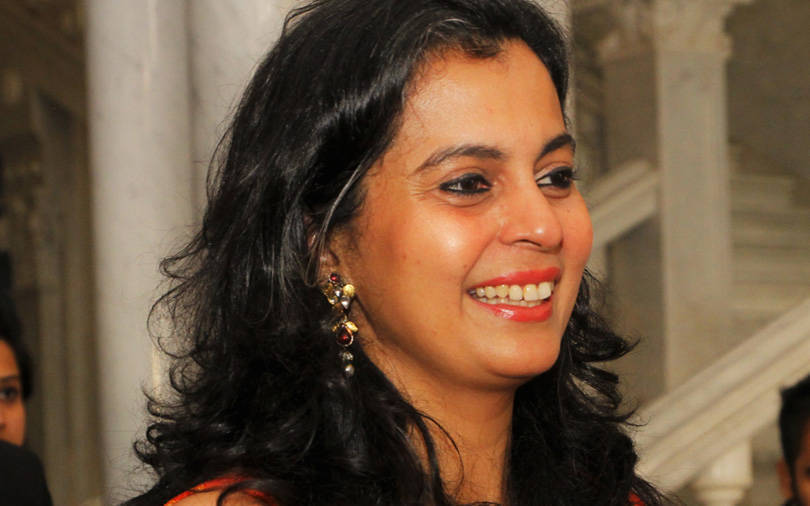
Sustainable innovation, not jugaad, is key to entrepreneurship in India


Every innovative tool or service we use today has been the result of a need felt by the consumer. Regardless of whether it was articulated or not, the need was matched by an individual or an organisation’s ability to reimagine a better future and solving the challenge at hand.
For instance, the need for an intuitive communication tool to keep us constantly connected led to the discovery of the smartphone. As transportation needs have increased, it revealed gaps in the traditional public transport system, which eventually gave birth to new-age cab-hailing services we rely on so readily today.
In that sense, innovation often stands at the crossroads where challenges meet foresight. However, what differentiates it from a hack, or jugaad, as we prefer to call it in India, is the fortitude and wisdom drawn from numerous insights and learnings gathered along the way.

Quick fixes aren’t innovation
Creative minds combined with limited resources have been devising quick solutions to challenges which might be great for the here and now, but are temporary, and most often, fail to have a more sustainable scalable impact. These hacks are often transient in nature and are more often than not created in order to push a product or service in the market, and not necessarily to solve a consumer need or challenge. The Punjabi dhaba owners using a washing machine to sell lassi is a classic and oft used example of what jugaad can do. But it certainly doesn’t qualify as innovation, for it doesn’t factor any scalable insights nor does it create a sustainable impact.
In order to create a lasting impact that can address the myriad challenges that we face as a nation, a more cohesive problem-solving approach needs to be created, one that is user-friendly and drives innovation and that addresses our needs as a nation while creating an enabling environment to the fast mushrooming population of entrepreneurs. To state it simply, precisely because we are a country buzzing with entrepreneurial energy embedded in resource limitations, sustainable innovation is critical.

Impact that is worth scaling
It has become increasingly evident that innovation-focused businesses are showing sustainable growth, leapfrogging into the next frontier of growth. Integrating carefully curated insights from consumers with a forward-thinking approach that addresses consumer needs has enabled innovative startups to come up with the next big product or service which holds the promise of creating far greater disruption and solving larger challenges consistently.
We have a plethora of successes to prove this already, be it in the form of Ola or Paytm, substantiating this insight-based approach even as we move from solving connectivity challenges to sectoral challenges in the agriculture, healthcare, education and infrastructure spaces.

Take for instance Niramai which has come up with a substitute for mammography. Their novel software offers a low cost, accurate, and most importantly, non-intrusive imaging method from which women as young as 25 years can benefit. First of its kind, this artificial intelligence-based thermographic non-contact technology is being used for regular preventive health checkups and also for large-scale screening in rural and semi-urban areas. Niramai’s story brings out the importance of strategic designs and long-term thinking instead of focusing simply on fixing immediate needs.
Another example that comes to mind is S4S Technologies, a food preservation company powered by UN award-winning solar drying technology. S4S works with over 2,000 women farmers to produce preservative-free dehydrated food having one year of shelf life. On one side, S4S provides chemical-free, nutritious products to consumers, and on the other side, it has created a positive impact on a farmer’s livelihood helping them increase their income by over 50%.
Identifying ideas worth scaling

The first litmus test to the viability of an innovative idea is whether it is scalable.
The second one would naturally be to test out the innovation in the market to see if it actually meets the requirements of a customer and solves for a challenge that exists in the market.
Thirdly, ask an expert. The overall ecosystem supporting Innovative India is gradually growing and finding a seasoned mentor can sometimes breathe a fresh lease of life into wedged businesses. Mentors have the ability to identify innovative mavericks, offer them best insights and resources to help them achieve their ambitious goals, help create distinct differentiators in a competitive market space by solving business-critical challenges and help innovative businesses scale their business ventures.

A quick scan across any sector thriving in the country will confirm the existence of such innovative ideas. For example, the healthcare sector has seen a surge in medical devices that cut through cost barriers like never before, or energy efficiency devices that make basic amenities such as fans available to mass audiences at a fraction of the cost, or even access to education through platforms and process-driven innovations that make it possible for even the remotest villages to gain literacy.
The nation is boiling over with new ideas waiting to be discovered in every faction. The encouraging difference is that these ideas are rooted in insights observed in a particular sector, and not on quick fixes, that best serve the customer and solve a larger challenge.
Priya Kapadia heads the Marico Innovation Foundation.


